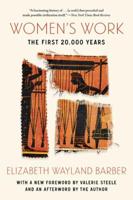Publisher's Synopsis
In 1926, Harold Keltner, a YMCA Boys Work secretary from St. Louis, and Joe Friday, a member of the Canadian Ojibwe First Peoples, channeled white middle-class fascination with Native Americans into what became the Y-Indian Guides youth pro-gram, engaging over a half million participants across the nation at the height of its 77-year history. Intended to soften the stereo-typical stern father, the program traced a complicated thread of American history, touching upon themes of family, race, class, and privilege.
The Y-Indian Guides was a father-son (and later parent-child) program that encouraged real and enduring bonds through play and an authentic appreciation of family. While "playing Indian" seemed harmless to most participants during the pro-gram's heyday, Paul Hillmer and Ryan Bean demonstrate the problematic nature of its methods. In the process of seeking to admire and emulate Indigenous Peoples, Y-Indian Guide participants often misrepresented American Indians and reinforced harmful ste-reotypes. Ultimately, this history demonstrates many ways in which American culture undermines and harms its Indigenous communities.









